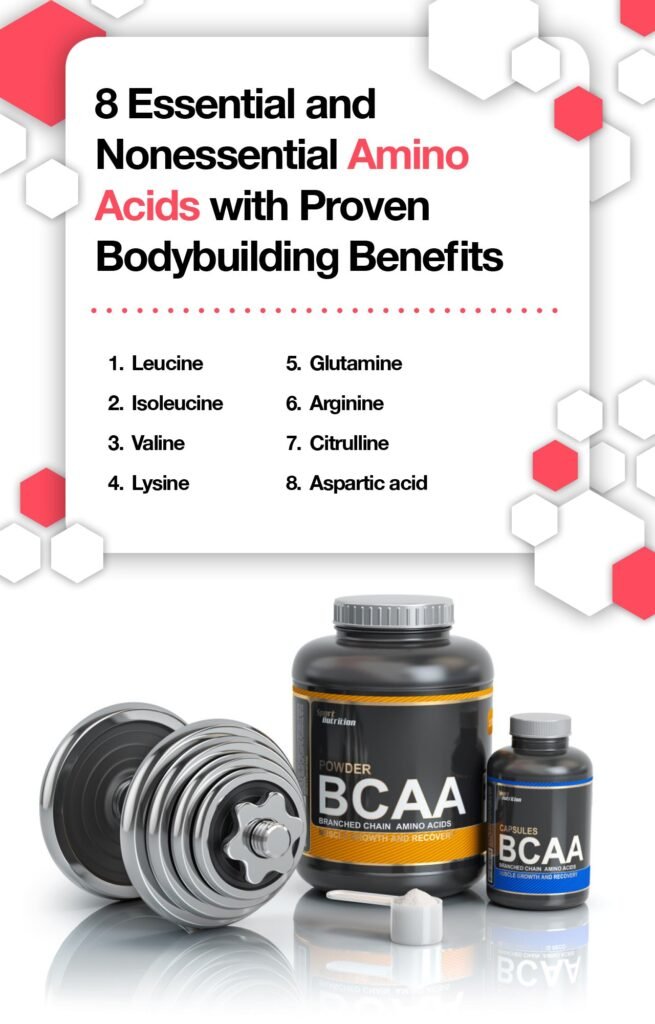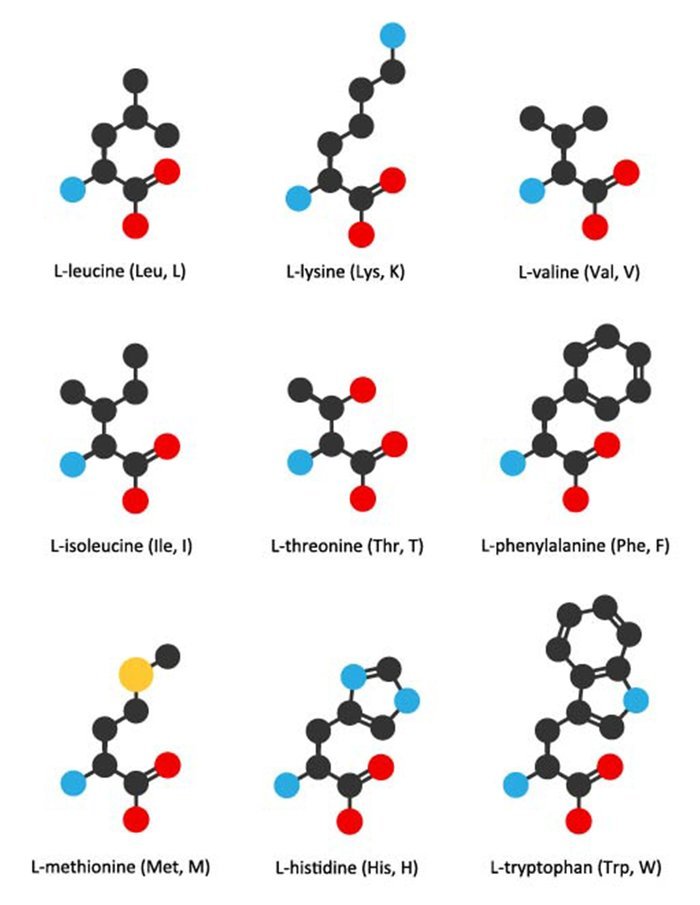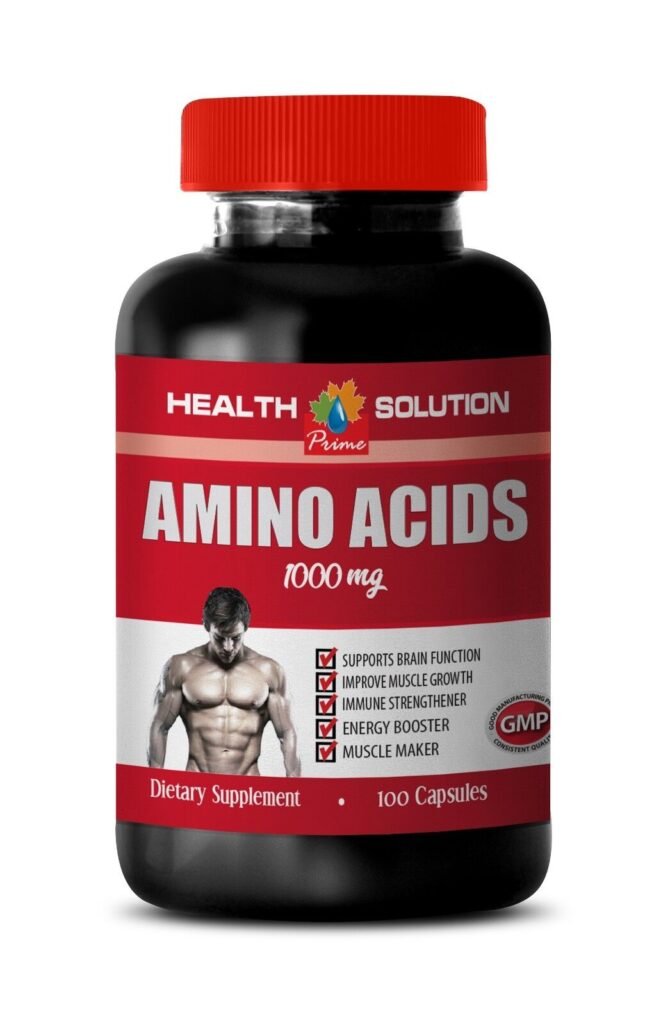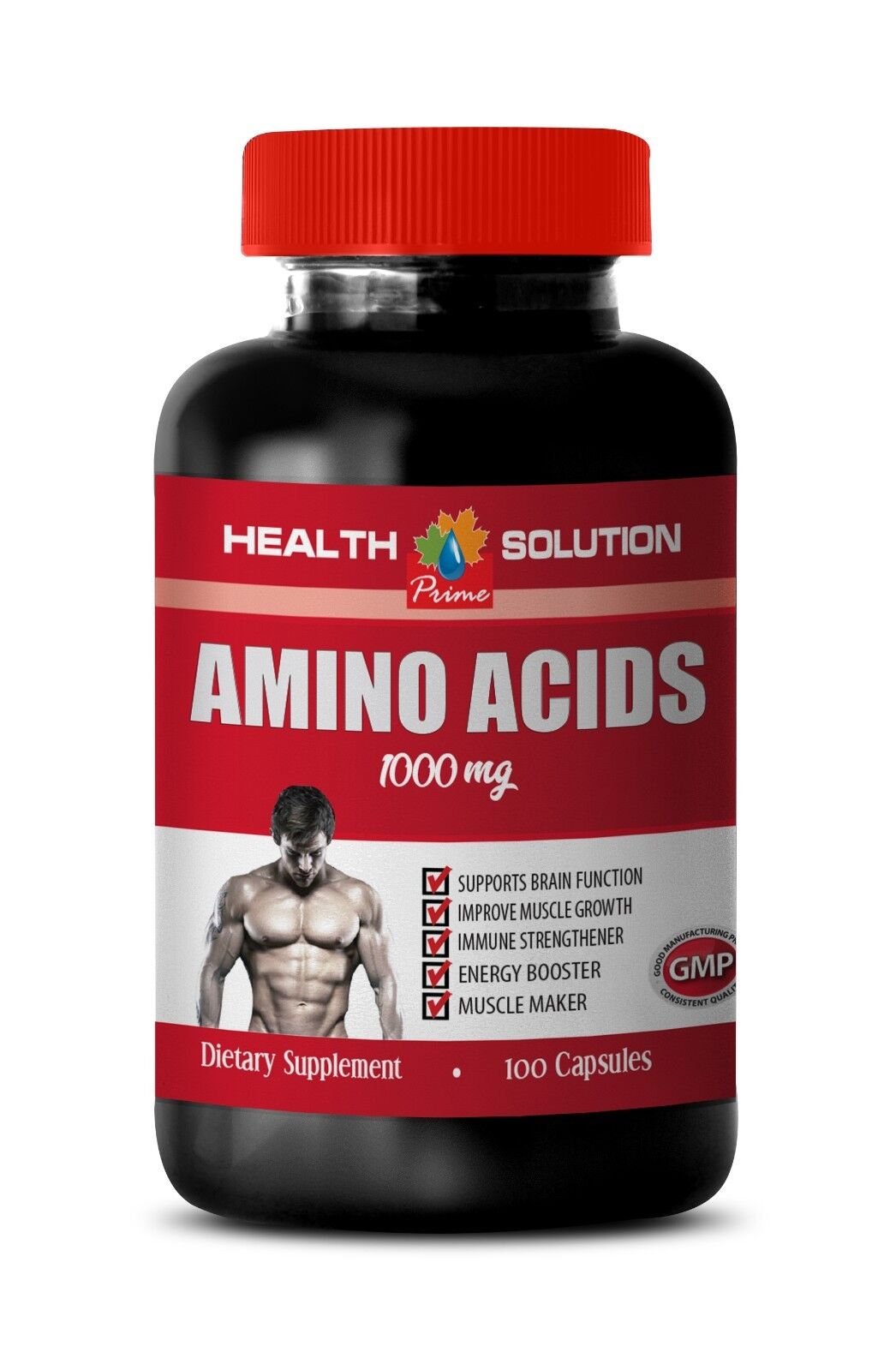Have you ever wondered how amino acids play a crucial role in muscle growth? By understanding the different types of amino acids and their functions, you can optimize your muscle-building process. Let’s explore the world of amino acids for muscle growth together!
What are Amino Acids?
Amino acids are the building blocks of protein, which is essential for muscle growth and repair. There are 20 different amino acids, with nine of them being essential, meaning your body cannot produce them on its own. These essential amino acids must be obtained through your diet or supplementation to support muscle growth effectively.
Essential Amino Acids vs. Non-Essential Amino Acids
Essential amino acids are not produced by the body, so you need to consume them through food sources like meat, dairy, eggs, and plant-based proteins. Non-essential amino acids, on the other hand, can be synthesized by the body, so they are not necessary to consume in your diet. Both types of amino acids play a vital role in muscle growth and overall health.
The Role of Amino Acids in Muscle Growth
Amino acids are crucial for muscle growth because they act as the building blocks for protein synthesis. When you engage in resistance training or exercise, tiny tears occur in your muscle fibers. Amino acids then help repair and rebuild these muscles, leading to muscle growth and strength gains over time.
Branched-Chain Amino Acids (BCAAs)
BCAAs, including leucine, isoleucine, and valine, are essential amino acids that play a key role in muscle growth and recovery. Leucine, in particular, has been shown to stimulate muscle protein synthesis, making it an essential component of any muscle-building regimen.
Here is a table outlining the benefits of each BCAA:
| BCAA | Benefits |
|---|---|
| Leucine | Stimulates muscle protein synthesis, essential for muscle growth |
| Isoleucine | Supports energy production and muscle repair |
| Valine | Helps with muscle metabolism and tissue repair |
Essential Amino Acids (EAAs)
In addition to BCAAs, essential amino acids as a whole are necessary for muscle growth. When consumed in the right ratios, EAAs can maximize muscle protein synthesis and optimize recovery post-exercise. Ensuring you have an adequate intake of all essential amino acids is crucial for optimal muscle growth.

This image is property of cdn.shopify.com.
Sources of Amino Acids
To support muscle growth, it’s important to consume a variety of protein sources that contain all essential amino acids. Animal-based proteins like meat, poultry, fish, and dairy are complete protein sources, meaning they provide all nine essential amino acids in adequate amounts. Plant-based proteins like beans, legumes, nuts, seeds, and grains can also provide amino acids, but may require combining different sources to form a complete amino acid profile.
Protein Powders and Supplements
If you struggle to meet your daily protein needs through whole foods alone, protein powders and supplements can be a convenient way to boost your amino acid intake. Whey protein, casein protein, and plant-based protein powders are popular choices for those looking to increase their protein and amino acid consumption. These supplements can be easily added to smoothies, shakes, or baked goods to support muscle growth.
Here is a comparison table of the different types of protein powders:
| Protein Powder | Protein Source | Benefits |
|---|---|---|
| Whey Protein | Dairy (fast-digesting) | High in BCAAs, quick absorption for post-workout |
| Casein Protein | Dairy (slow-digesting) | Slow release of amino acids for overnight recovery |
| Plant-Based | Pea, rice, hemp, etc. | Suitable for vegans, contains all essential amino acids |
Whole Foods High in Amino Acids
Incorporating whole foods high in amino acids into your diet is essential for muscle growth. Here are some examples of foods rich in amino acids:
- Chicken breast: A lean source of protein that is high in all essential amino acids.
- Salmon: Provides omega-3 fatty acids and high-quality protein for muscle repair.
- Quinoa: A plant-based source of complete protein with all essential amino acids.
- Eggs: Contain all nine essential amino acids and are a versatile protein source.
- Greek yogurt: Rich in casein protein and BCAAs for muscle recovery.
Timing Your Amino Acid Intake
Consuming amino acids at strategic times can enhance muscle growth and recovery. Timing your intake around workouts and throughout the day can optimize protein synthesis and support muscle repair.
Pre-Workout Nutrition
Eating a meal or snack rich in protein and amino acids before a workout can provide your muscles with the necessary nutrients for energy and repair. Aim to consume a combination of protein and carbohydrates about 1-2 hours before exercise to fuel your workout and kickstart muscle protein synthesis.
Post-Workout Recovery
After a workout, your muscles are primed for growth and repair. Consuming protein and amino acids within 30 minutes to an hour post-exercise can enhance muscle recovery and protein synthesis. This time window, known as the “anabolic window,” is crucial for maximizing muscle gains and reducing muscle soreness.
Bedtime Protein
Consuming protein rich in casein, a slow-digesting protein, before bed can support overnight muscle repair and growth. Cottage cheese, Greek yogurt, or a casein protein shake are excellent bedtime snack choices to keep amino acids flowing to your muscles while you sleep.

This image is property of www.bodybuilding.com.
Supplementing with Amino Acids
In addition to whole foods and protein powders, amino acid supplements can offer targeted support for muscle growth and recovery. Different types of amino acid supplements exist, each with specific benefits for athletic performance and muscle-building goals.
BCAA Supplements
BCAA supplements are popular among athletes and fitness enthusiasts for their role in muscle preservation and recovery. Consuming BCAAs before, during, or after workouts can help prevent muscle breakdown and support muscle protein synthesis. These supplements are often available in powder or capsule form for convenient consumption.
EAA Blends
Essential amino acid blends contain all nine essential amino acids in balanced ratios to optimize muscle growth and recovery. These supplements are ideal for individuals looking to maximize protein synthesis and support overall muscle health. EAA blends can be consumed pre, intra, or post-workout for best results.
Glutamine
Glutamine is a conditionally essential amino acid that plays a crucial role in muscle recovery and immune function. Supplementing with glutamine can help reduce muscle soreness, support gut health, and enhance overall recovery post-exercise. This amino acid is particularly beneficial for athletes engaging in intense training regimens.
The Importance of Balanced Nutrition
While amino acids are essential for muscle growth, they must be consumed alongside a balanced diet rich in vitamins, minerals, and other essential nutrients. Focusing on whole, nutrient-dense foods will provide your body with the necessary building blocks for muscle growth and overall health.
Nutrient-Dense Foods
Incorporating a variety of fruits, vegetables, whole grains, lean proteins, and healthy fats into your diet will help ensure you are meeting all of your body’s nutritional needs. These foods provide vitamins, minerals, and antioxidants that support cellular function, energy production, and muscle repair.
Hydration
Staying hydrated is also crucial for muscle growth and recovery. Water plays a vital role in nutrient transport, digestion, and muscle function. Aim to drink plenty of water throughout the day, especially before, during, and after workouts to support optimal hydration levels.
Rest and Recovery
Finally, prioritizing rest and recovery is essential for muscle growth. Adequate sleep, stress management, and active recovery techniques like stretching and foam rolling can help your muscles repair and grow. Remember that muscles grow during rest, so be sure to give your body the time it needs to recover between workouts.

This image is property of i.ebayimg.com.
Conclusion
In conclusion, amino acids are the building blocks of protein and play a crucial role in muscle growth and recovery. By incorporating essential amino acids into your diet through whole foods, protein powders, and supplements, you can optimize muscle protein synthesis and support overall muscle health. Remember to time your amino acid intake strategically, focus on balanced nutrition, and prioritize rest and recovery to maximize muscle growth effectively. Cheers to your muscle-building journey!

